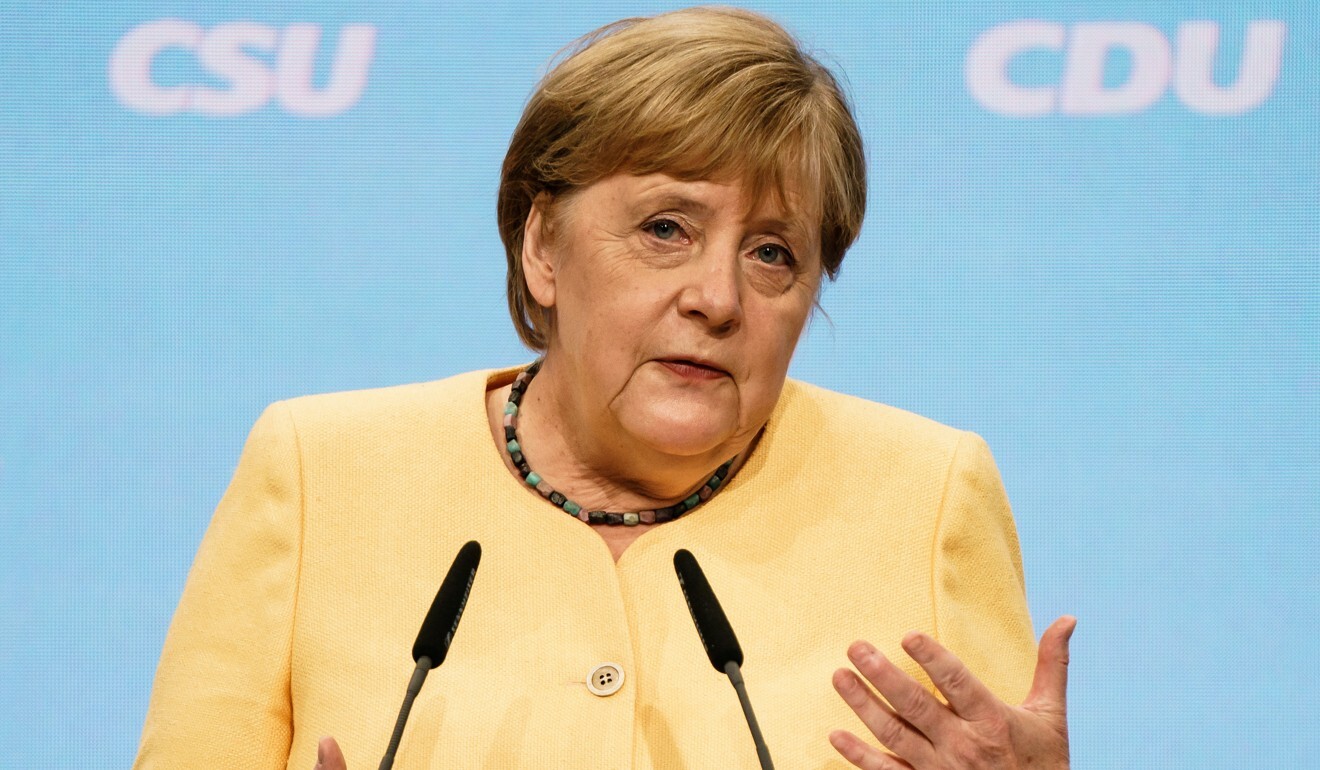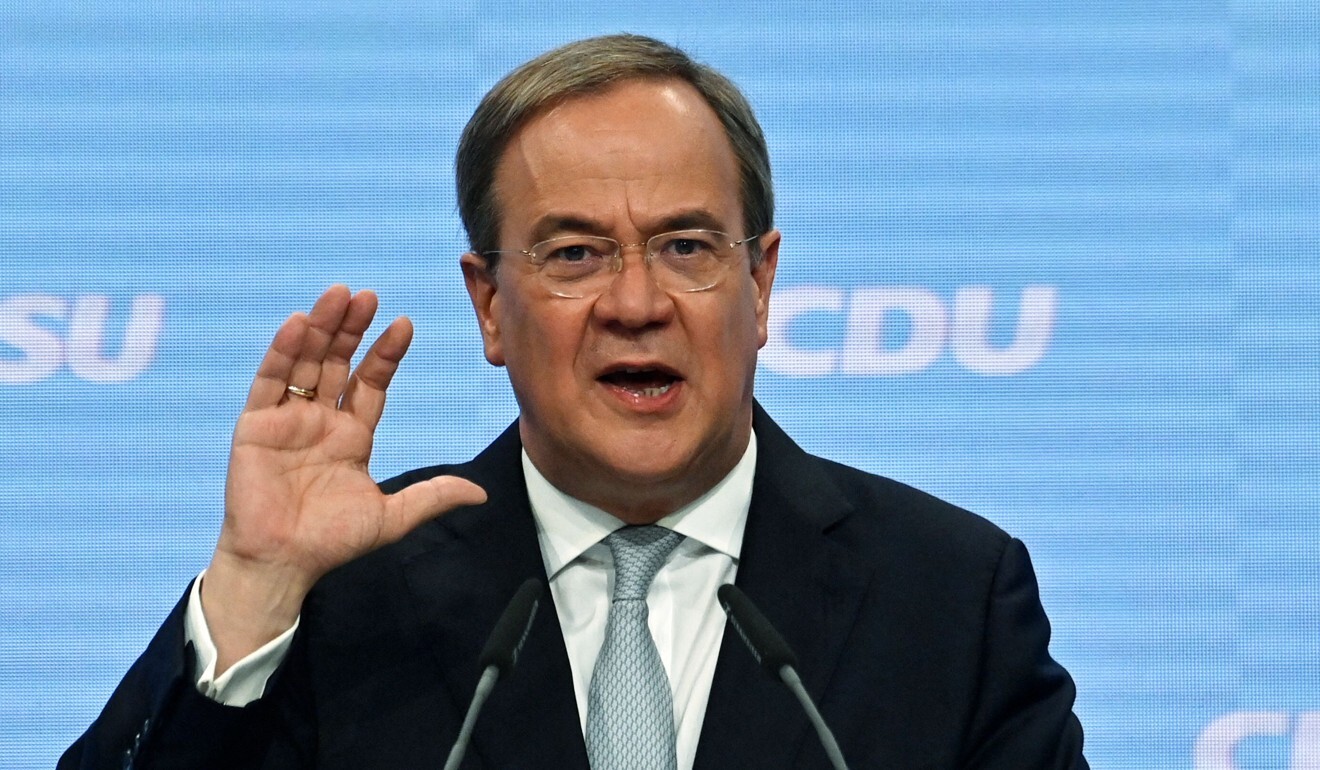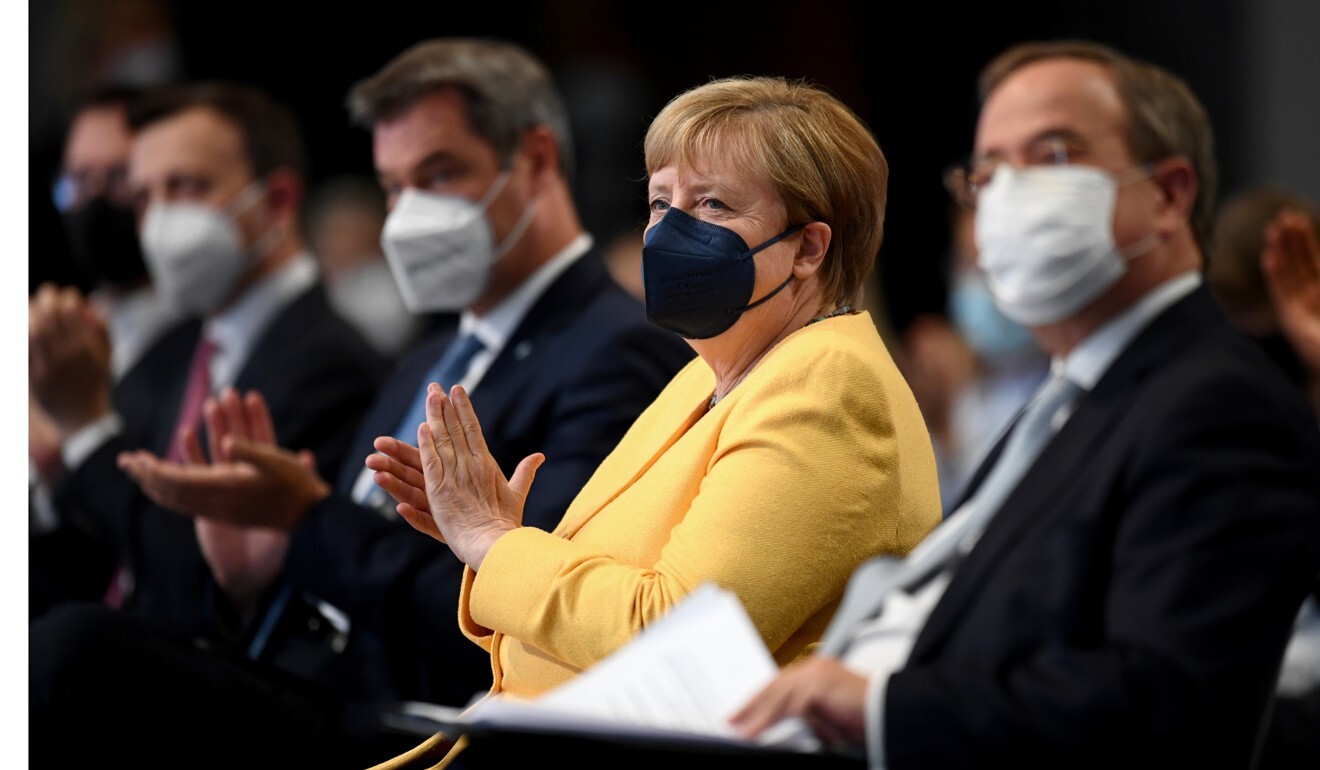
Germany’s Angela Merkel endorses would-be successor Armin Laschet at election rally
- Merkel will step down after Germany’s September 26 elections, but her conservative CDU-CSU alliance is struggling to find favour with voters
- The coronavirus pandemic, deadly floods and the Taliban’s takeover of Afghanistan have put pressure on Merkel’s government
The 67-year-old veteran will step down after September 26 elections and has so far refrained from commenting about who she preferred to take over from her.
But on Saturday, at a key election campaign rally, she came out to voice strong backing for Laschet.
“It has always been important to him to place the individual and their inviolable dignity at the centre of everything … I am deeply convinced that it is precisely with this attitude that [he] will serve the people of Germany as chancellor,” she said at the rally.
China and EU ties on knife-edge as Merkel says goodbye
While Merkel’s popularity ratings have held steady in the twilight of her reign, Laschet has struggled to find favour with voters.
The latest polls show their conservative bloc now hanging on to a narrow lead of two percentage points against junior coalition partners the Social Democrats, who have in recent weeks made big strides to overtake erstwhile runners-up the Greens.
A survey published on Friday showed just as many Germans want the Social Democrats to lead the next government as the conservatives – an alarmingly big drop of five percentage points in backing for the CDU-CSU from early August.
While frustration against the government over the coronavirus pandemic had initially weighed on the conservatives’ popularity earlier in the year, the mood had brightened as more Germans were vaccinated and curbs were eased.

An initial boost in support for the Greens had also melted away as its leader was embroiled in a plagiarism scandal and other gaffes, giving the conservatives a strong lead in polls entering the summer.
But the mood dramatically turned in July when Laschet was seen chuckling in the background with local officials while Germany’s president gave a speech mourning victims of deadly floods.
Since the disaster, the conservatives have been unable to halt a falling trend in popularity.
World leaders adapt to new political realities in Afghanistan
The Taliban’s lightning takeover of Afghanistan also puts more pressure on Merkel’s government, which is under fire for failing to anticipate the crisis sooner.
Merkel on Saturday conceded that the Afghan army’s resistance against Taliban militants had been misjudged.
“The army collapsed at a breathtaking pace,” Merkel said. “We had expected the resistance to be stronger.”
Merkel said the focus now was on rescuing people from Afghanistan, but later there would need to be a discussion on what had or had not been achieved.

On the eve of Saturday’s rally, criticism from several backbenchers spilled out into the open, with the Bild daily even quoting MPs apparently urging Laschet to step aside for the sake of the party.
“A quick and painful reaction is better than to go down together,” CDU lawmaker Sylvia Pantel was quoted as saying.
The jitters in the conservative camp also risk reviving strife that had dogged the alliance of CDU and its sister party CSU even before the start of their election campaign.
Headache for Merkel ‘as Beijing calls Berlin’s bluff in South China Sea’
Laschet only secured the conservatives’ chancellor candidate nomination in April after a bruising battle with the leader of Bavaria’s CSU, Markus Soeder.
Despite conceding after the loss, a whiff of discontent has lingered in the air from Soeder’s camp as the Bavarian has been consistently ahead in popularity polls against Laschet.
In a new jibe from Soeder’s camp on Friday, CSU general secretary Markus Blume said there was “great potential for improvement” in the conservatives’ poll ratings, and that, is “especially, by the way, when measured against the tremendous popularity that Markus Soeder continues to enjoy”.

At Saturday’s rally, Soeder underlined that it was the conservatives’ toughest campaign since 1998, when the alliance was voted out of government.
“The trend is clear at the moment – it’s not heading upwards. And that’s why today is important, all’s not lost yet,” he said
“There’s no reason to complain, rather, it is time to really put up a fight.”
Additional reporting by Reuters

.png?itok=arIb17P0)